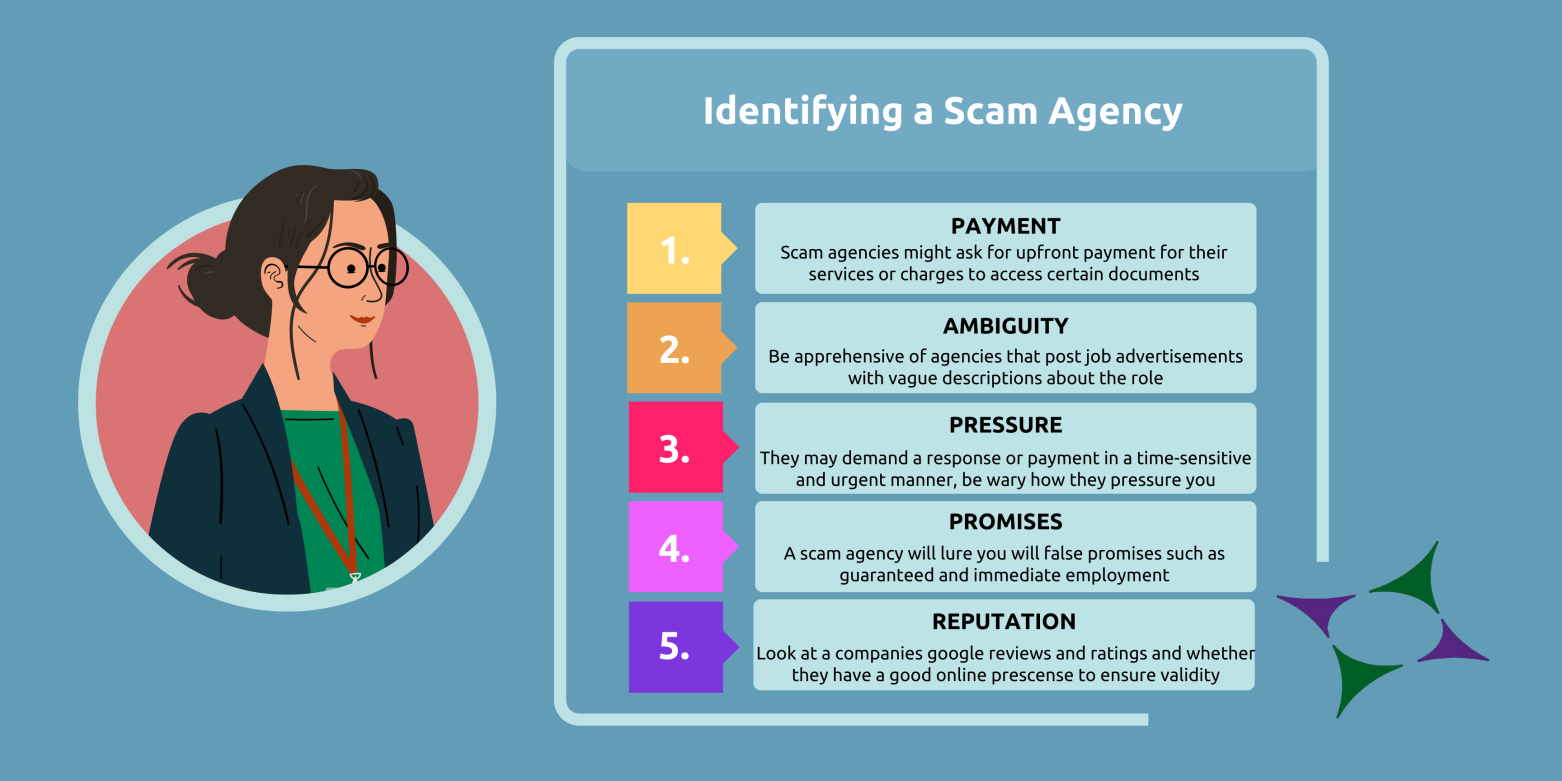
News
Working together, improving lives

Scam Agencies: How To Identify Them And Protect Yourself
Looking for your dream job can often be a stressful and overwhelming experience, and unfortunately, some individuals and organisations seek to take advantage of you during this time. It’s not uncommon to be inundated with excessive advertisements, prospective opportunities or links that request your personal information. Examples of this are typically sent from what is referred to as a ‘Scam Agency’. An organisation that poses as a legitimate recruitment agency, promising job seekers to find their perfect role. However, this is not their intention, as they look to fool you and make a quick profit through clever tricks and tactics. In this blog, we will explore how to spot and avoid such scam agencies.

What to look out for:
1. Payment
One of the most easily identifiable traits of a scam agency is whether they ask for payment for things others don’t. Where it is fairly normal for agencies in healthcare to ask you to pay for a DBS check or a uniform, scam agencies will ask you for fees for subscribing to their service to find you work, or will charge you to download their app or for attending training they insist you have to be able to work for them.
2. Ambiguity
- A legitimate recruitment agency will provide you with clear information and will be happy to answer your questions, including company details such as the name, location or details of a relevant contact person within the business. All such information that can be confirmed with a quick Google or Linkedin search. Agencies that post vague descriptions about the details of the role or refuse to respond to questions might be hiding something and there could be a risk that they’re not a professional body.
3. Pressure
- Scam recruitment agencies are looking to make a quick buck, as such, you might feel a sense of urgency or pressure as someone demands you to sign up for their services quickly. They may use pressure tactics, such as, stating the job is only available for a limited time. If you’re unsure, read through the paperwork provided thoroughly to make a more informed decision. Never sign anything until you have read the small print!
4. Promises
- A scam agency will lure you in by insisting you’ll be guaranteed income. Scam agencies that state you’ll be provided employment without mentioning such checkpoints are likely to be illegitimate, if they don’t discuss your relevant experience or qualifications, or material relating to your industry such as a DBS check, they should be avoided.
5. Reputation
- In the modern world, it’s easy to search for information about a business or person and transparency is key! If you’re unfamiliar with an agency that has reached out to you, or you fear they might be a scam, research more about them. Look for their company online, see if they have any reviews on Google, or if they operate on any social media websites, try to find the location for their offices or search for the company name on the government’s companies house website. Reputable agencies will cover all these bases and in great detail. If you find one that lacks information or is poorly scrutinised online, its likely to be a trick.

What can I do to ensure I don’t fall for their tricks?
1. Research
- In the same way, you look at reviews before making a purchase online, Always do your research before signing up with a recruitment agency and see what others have to say. Look out for a physical address, phone number, professional affiliations and registration with relevant organisations, like the REC and CQC.
2. Information
- Don’t share personal information. Never give out details such as your bank account, mother’s maiden name or an answer to an unsuspecting question.
3. Instinct
- If something feels off about the agency reaching out to you, trust your instincts. It’s always better to be safe than sorry, even if it means your job hunting takes a little longer than you would like.

In conclusion, scam agencies can be highly convincing and overly accommodating, but with these warning signs explored above, you can avoid falling for their deceptive traps and spot their clever tactics to avoid falling foul.
For more information on topics such as the one explored in today’s blog, be sure to follow us on social media @deanhealthcare as we provide more insightful industry knowledge.
